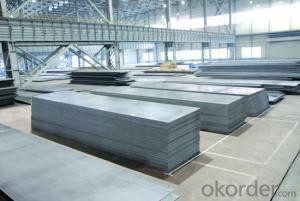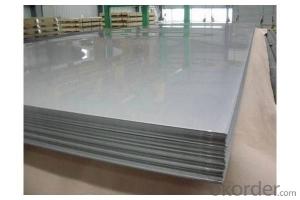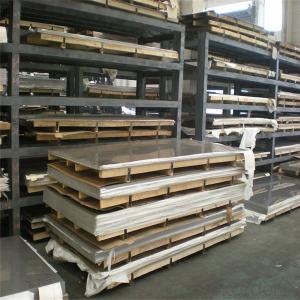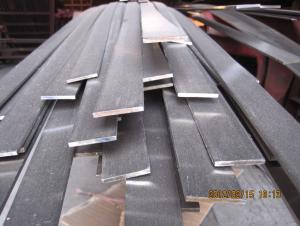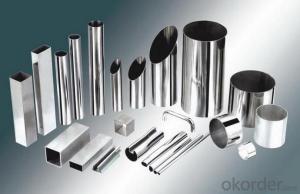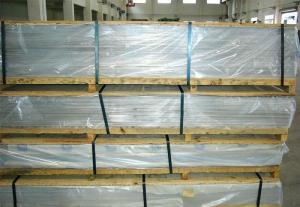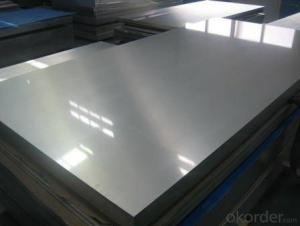Supper Carbon Structural Steel
- Loading Port:
- China Main Port
- Payment Terms:
- TT OR LC
- Min Order Qty:
- -
- Supply Capability:
- -
OKorder Service Pledge
OKorder Financial Service
You Might Also Like
Quality carbon structural steel is introduced
Definition
Quality carbon structural steel (GB/T699-1999):
Steel in addition to containing carbon (C) elements and for deoxidizing and contains a certain amount of silicon (Si) (generally not more than 0.40%), manganese (Mn) (generally not more than 0.80%, higher to 1.20%) alloy elements, excluding other alloy elements (residual element except). This kind of steel must also ensure that the chemical composition and mechanical properties. The sulfur phosphorus (S), (P) the content of impurity elements in the general control 0.035%. If the control is in 0.030% person that senior high quality steel, the brand should add behind "A", for example, 20A; if P 0.025% control in the following, the S control is in 0.020% the following, called super high quality steel, the brand should add behind "E" to show the difference. For by raw material brought into other residual alloy elements in steel, such as chromium (Cr), nickel (Ni), copper (Cu) etc. the content general control in the Cr = 0.25%, Ni = 0.30%, Cu = 0.25%. Some grades of manganese (Mn) content reached 1.40%, known as manganese steel.
This kind of steel is to rely on the adjustment of carbon (C) to improve the mechanical properties of steel, therefore, according to the carbon content of the steel, this can be divided into:
Low carbon - carbon content is generally less than 0.25%, such as 10, 20 steel etc.;
Medium carbon - carbon content in general 0.25 ~ 0.60%, such as 35, 45 steel etc.;
High carbon steel -- the carbon content is generally greater than 0.60%. This kind of steel is generally not used in the manufacture of steel pipe.
In fact, they are between the carbon content and no clear boundaries.
This kind of steel production is large, wide purpose, generally more rolling (forging) made of round, square, flat and profiles, sheet and seamless steel pipe. Mainly used in the manufacture of general structure and mechanical structure parts, components and structural parts and pipes conveying fluid. According to the use requirements, sometimes requiring heat treatment (normalizing or quenching and tempering) after use.
Classification
Quality carbon structural steel according to the different carbon content can be divided into three categories: low carbon steel (C = 0.25%), carbon steel (C 0.25-0.6%) and high carbon steel (C>
Dear friends, I am glad to receive your mail, we will give you the tracking number in the time in October 14th, in October 16th the goods by customs returned, in October 16th we re transport, this is the new tracking number,
Dear friends, I am glad to receive your mail, we will give you the tracking number in the time in October 14th, in October 16th the goods by customs returned, in October 16th we re transport, this is the new tracking number,
0.6%).
Quality carbon structural steel is divided into normal manganese content in manganese containing different amount (containing manganese 0.25%-0.8%) and high content of manganese (Mn containing 0.70%-1.20%) two group, the latter has the mechanical performance and good processing performance.
1, hot rolled quality carbon structural steel sheets and strips
Hot rolled quality carbon structural steel plates and strips for automobile, aviation industry and other parts. The grade of steel boiling steel: 08F, 10F, 15F; killed Steels: 08, 08AL, 10, 15, 20, 25, 30, 35, 40, 45, 50. The following 25 and 25 for low carbon steel 30 and more than 30 for the medium carbon steel.
2, hot rolled quality carbon structural steel plates and wide strips
Hot rolled quality carbon structural steel plates and wide strips used for various mechanical parts. The grade of steel is low carbon steel include: 05F, 08F, 08, 10F, 10, 15F, 15, 20F, 20, 25, 20Mn, 25Mn; medium carbon steel include: 30, 35, 40, 45, 50, 55, 60, 30Mn, 40Mn, 50Mn, 60Mn etc.; high carbon steel including: 65, 70, 65Mn.
Use
The content of sulfur and phosphorus quality carbon structural steel is less than 0.035%, mainly used in the manufacture of parts is more important. In the project is generally used for steel wire, steel strand and anchorage of prestressed concrete production, and high strength bolts, important structural steel castings.
Full of responsibility and do not break free, full of compatible without losing individuality. For example, the number 20 represents the average steel carbon content of 0.20% high quality carbon steel. For the boiling steel in the rear plus F, such as 10F, 15F etc.. 08, 10, 15, 20, 25 grades and belongs to the low carbon steel, which has good plasticity, easy drawing, stamping, extrusion, forging and welding.
Quality carbon structural steel in 08, 10, 15, 20, 25 grades and belongs to the low carbon steel, which has good plasticity, easy drawing, stamping, extrusion, forging and welding. The most widely used of the 20 steel, used to manufacture screws, nuts, washers, a small shaft, stamping parts, welding parts, sometimes also used in the manufacture of carburized parts. 30, 35, 40, 45, 50, 55 grades is medium carbon steel, because of increased steel pearlite content, its strength and hardness are improved than before, after quenching hardness can be increased significantly. Among them, with 45 steel is the most typical, it not only strength, high hardness, and has better plasticity and toughness, namely excellent comprehensive properties. 45 steel uses in the mechanical structure of the most widely used to manufacture, screw, shaft, gear, a connecting rod, a sleeve, keys, an important screws and nuts etc.. 60, 65, 70, 75 grades belong to high carbon steel. They not only after quenching and tempering strength and hardness, and excellent elasticity, used to manufacture a small spring, spring, steel wire rope, such as roller.
- Q: What are the different edge treatments for steel sheets?
- There are several different edge treatments that can be applied to steel sheets depending on the desired functionality and aesthetics. Some of the common edge treatments for steel sheets include: 1. Deburring: This process involves removing any burrs or sharp edges that may have formed during the manufacturing process. Deburring is done to improve safety and prevent injuries during handling and installation. 2. Beveling: Beveling is the process of creating a sloping edge on the steel sheet. It is often done to facilitate welding or joining of multiple sheets together. Beveled edges provide a smooth transition and increase the strength of the joint. 3. Chamfering: Similar to beveling, chamfering involves creating a beveled edge on the steel sheet. However, chamfering is primarily done for aesthetic purposes to provide a finished and polished look to the edges. 4. Hemming: Hemming is a technique used to bend the edge of a steel sheet back onto itself. It is commonly used in automotive and appliance industries to create a safe and smooth edge that eliminates the need for additional finishing or edge protection. 5. Rolled edges: Rolled edges are achieved by bending the edge of the steel sheet in a curved or rounded shape. This type of edge treatment is often employed to enhance structural integrity, reduce the risk of injury, and improve the overall appearance of the sheet. 6. V-grooving: V-grooving is a process of cutting a V-shaped groove along the edge of the steel sheet. This treatment is commonly used for decorative purposes or to create a clean and precise joint when multiple sheets are being joined together. 7. Flanging: Flanging involves bending or folding the edge of the steel sheet at a specific angle. This treatment is often used to increase rigidity and strength along the edge, especially in applications where the sheet needs to support weight or resist bending. Each of these edge treatments serves a specific purpose and can be selected based on the specific requirements of the project. It is important to consider factors such as functionality, safety, aesthetics, and ease of fabrication when choosing the appropriate edge treatment for steel sheets.
- Q: Are steel sheets resistant to rust or corrosion?
- Yes, steel sheets are resistant to rust or corrosion due to the presence of protective coatings or alloys that prevent the metal from oxidizing when exposed to moisture or other corrosive elements.
- Q: What is the process of forming corrugated steel sheets?
- The process of forming corrugated steel sheets involves passing a flat steel sheet through a series of rolling mills equipped with corrugating rolls. These rolls have a pattern of ridges and grooves that shape the steel sheet into a wavy or corrugated form. The sheet is fed into the first set of rolls, which press the ridges into the sheet, and then it goes through subsequent sets of rolls to further refine the corrugations. This process creates strength and rigidity in the steel sheet, making it suitable for various applications in construction, roofing, and packaging industries.
- Q: Do steel sheets have any environmental benefits?
- Yes, steel sheets have several environmental benefits. Firstly, steel is a highly recyclable material, meaning that it can be reused multiple times without losing its quality. This significantly reduces the need for new steel production, which in turn reduces the extraction of raw materials and the energy consumption associated with manufacturing. Recycling steel also helps in reducing greenhouse gas emissions and conserving natural resources. Additionally, steel sheets are extremely durable and long-lasting. They have a high resistance to corrosion, which means they require minimal maintenance over their lifespan. This durability reduces the need for frequent replacements, thus reducing the demand for new steel production and the associated environmental impact. Moreover, steel sheets can contribute to energy efficiency in buildings. When used as roofing or cladding material, steel sheets can provide excellent insulation properties, helping to reduce heating and cooling energy requirements. This leads to lower energy consumption and, consequently, a reduced carbon footprint. Furthermore, steel sheets are fire-resistant, which enhances the safety of buildings and reduces the risk of fire-related accidents. This can have positive environmental impacts by minimizing the release of harmful emissions and pollutants resulting from fires. In conclusion, steel sheets offer various environmental benefits, such as recyclability, durability, energy efficiency, and fire resistance. These qualities contribute to a more sustainable and eco-friendly approach in construction and manufacturing industries.
- Q: How can steel plates with a thickness of 1MM be welded?
- 1mm steel plate is best made by spot welding or flash welding, for example, electrical welding will cause plate deformation
- Q: Are the steel sheets suitable for shipbuilding?
- Yes, steel sheets are suitable for shipbuilding due to their high tensile strength, durability, and ability to withstand harsh marine environments.
- Q: What is the process of powder coating steel sheets?
- The process of powder coating steel sheets involves several steps. First, the steel sheets are thoroughly cleaned to remove any dirt, grease, or rust. Then, a fine powder coating material is electrostatically charged and sprayed onto the surface of the steel sheets. The charged particles adhere to the metal surface, creating a uniform coating. The coated sheets are then heated in an oven, allowing the powder to melt and cure, forming a durable and protective finish. Once cooled, the steel sheets are ready for further processing or use.
- Q: Are steel sheets suitable for construction applications?
- Yes, steel sheets are highly suitable for construction applications. They offer exceptional strength, durability, and versatility, making them ideal for various construction projects such as buildings, bridges, and infrastructure. Steel sheets are known for their ability to withstand extreme weather conditions and provide structural stability. Additionally, they are cost-effective, easy to install, and can be recycled, making them an environmentally friendly choice for construction.
- Q: Are the steel sheets resistant to chemicals?
- Steel sheets are typically able to withstand chemicals. Steel is renowned for its strength and durability, rendering it extremely resistant to corrosion caused by different chemicals. Nevertheless, the level of resistance may differ depending on the particular type and grade of steel employed, as well as the type and concentration of chemicals utilized. For instances involving highly corrosive substances like acids or alkalis, the implementation of supplementary protective measures such as coatings or surface treatments may be imperative to augment the chemical resistance of steel sheets.
- Q: What is the maximum size available for steel sheets?
- The maximum size available for steel sheets can vary depending on the specific type and grade of steel being used, as well as the manufacturing capabilities of the steel supplier. However, in general, steel sheets can be manufactured in sizes ranging from small sheets measuring a few inches in width and length, to large sheets measuring several feet or even meters in width and length. The maximum size available for steel sheets can also be influenced by the transportation and handling limitations, as larger sheets may be more difficult to transport and maneuver. It is best to consult with a steel supplier to determine the maximum size available for steel sheets that meet your specific requirements.
Send your message to us
Supper Carbon Structural Steel
- Loading Port:
- China Main Port
- Payment Terms:
- TT OR LC
- Min Order Qty:
- -
- Supply Capability:
- -
OKorder Service Pledge
OKorder Financial Service
Similar products
Hot products
Hot Searches
Related keywords
